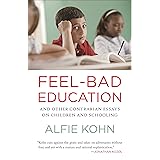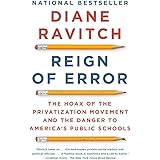
Download the free Kindle app and start reading Kindle books instantly on your smartphone, tablet, or computer - no Kindle device required.
Read instantly on your browser with Kindle for Web.
Using your mobile phone camera - scan the code below and download the Kindle app.

OK
America's Public Schools: From the Common School to "No Child Left Behind" (The American Moment) 1st Edition
William J. Reese's history of public schools in America examines why citizens have repeatedly turned to the schools to improve society and how successive generations of reformers have tried to alter the curriculum and teaching practice to achieve their goals.
Organized around two themes―education as the means for reforming American society and ongoing reform within the schools themselves―this study examines two centuries of American public education. It explores school and society in the nineteenth century, including public school growth in the antebellum and postbellum eras; competing visions of education and reform during the first half of the twentieth century; and social change and reform from the 1950s through the 1980s.
Reese emphasizes the centrality of schools in the history of reform and their persistent allegiance to traditional practices and pedagogy despite two centuries of complaint by romantics and progressives. He describes tradition as a reliable friend of public schools, despite the enormous changes that have occurred over time: the centralization of authority, professionalization of teaching staff, and the expansion of curricular offerings.
Reese's clear and accessible book is an original interpretation of the history of public elementary and secondary schools in America. It should become a standard text for future teachers as well as scholars of education.
- ISBN-100801881951
- ISBN-13978-0801881954
- Edition1st
- PublisherJohns Hopkins University Press
- Publication dateAugust 10, 2005
- LanguageEnglish
- Dimensions6 x 1.03 x 9 inches
- Print length376 pages
Books with Buzz
Discover the latest buzz-worthy books, from mysteries and romance to humor and nonfiction. Explore more
Customers who viewed this item also viewed
Editorial Reviews
Review
In this extraordinary book, Reese tells the complex story of American education in a form that is simple but not simplistic, mixing cogent generalizations about historical patterns with vivid accounts of individuals who were particularly influential or representative of the times. He expertly examines the American ambivalence about this institution―seen as both the answer and the source of social problems, making it both the means and the object of reform.
(David Labaree, Stanford University)A very good introductory survey for anyone who wants to learn more about American education... Provides fresh information about familiar topics.
(Sunday Times)This is a superb history of our public schools, one that is clearly and colorfully written.
(Don T. Martin Journal of American History)A brilliant contribution to the field. It is a gracefully written, well-researched, and deeply engaging book that deserves a wide readership.
(Jeffrey Mirel Paedagogica Historica)Reese has delivered in one volume an analysis as synthetic, intelligent, and importantly, deeply engaged with the most enduring issues in popular education as we are likely to encounter for some time.
(Stephen Lassonde Journal of Social History)America's Public Schools is solid, if not perfect.
(Dave Moyar New York Journal of Books―West)The work provides a detailed description of over two-hundred years of public schooling and explores the dual effects of public reform policy as an influence on school policy and the work of schools themselves in adapting to evolving social needs.
(Reference and Research Book News)About the Author
William J. Reese is a professor of educational policy studies, history, and European studies at the University of Wisconsin–Madison.
Product details
- Publisher : Johns Hopkins University Press; 1st edition (August 10, 2005)
- Language : English
- Hardcover : 376 pages
- ISBN-10 : 0801881951
- ISBN-13 : 978-0801881954
- Item Weight : 1.35 pounds
- Dimensions : 6 x 1.03 x 9 inches
- Best Sellers Rank: #7,768,436 in Books (See Top 100 in Books)
- #5,063 in Elementary Education
- #9,640 in United States History (Books)
- #16,395 in Business Education & Reference (Books)
- Customer Reviews:
About the author

Discover more of the author’s books, see similar authors, read author blogs and more
Customer reviews
Customer Reviews, including Product Star Ratings help customers to learn more about the product and decide whether it is the right product for them.
To calculate the overall star rating and percentage breakdown by star, we don’t use a simple average. Instead, our system considers things like how recent a review is and if the reviewer bought the item on Amazon. It also analyzed reviews to verify trustworthiness.
Learn more how customers reviews work on Amazon-
Top reviews
Top reviews from the United States
There was a problem filtering reviews right now. Please try again later.
Reese discusses major reformers - you know those poeple that were so profound that you wondered why "that" school was named after "that" person. This book tells who those reformers were and why they were so important. What is better is that Reese does not get "overly educational" on you! What is also important is how Reese illustrates just through the history alone how society and schools are intertwined.
Definitely a good book and more than what I expected. Take your time with this book to hear and see all that William J Reese is trying to show and reveal to the reader!
"To this day, progressive educators encounter apathy, indifference, and resistance from the poor, who are often moored to tradition and suspicious of bourgeois reform."
Seriously!? That's a pretty broad, biased, and hostile brush to paint all poor people in America (and possibly the world) with and more so to put forward that conclusion with no evidence, context, or explanation (it was the end of the paragraph before moving to a new topic) is an example of the shoddy scholarship in this book. It was also just one of MANY times I wanted to ask the author "but WHY are they suspicious? WHY do they prefer the traditional practices? HOW do those practices fit into their world? WHAT did the reformers believe was WRONG with the traditional practices or the people who followed them?" Sadly, these questions are never even asked by the author. The issues with this sentence are representative of many such sentences in the book. I think it also belies the true ideological and political position of the author which comes across throughout the book but which is not explicitly stated and which is fairly hard to discern due to the disorganized nature of the book and the writing.
His ability to cover the subject well dose not make up for the unpleasantness of reading this book. If you are looking for something fun to read about the schools, stay the hell away from this. If you are looking for a book for research purposes then find something more coherent.
To put this review in a frame of reference, I do not know anything about the history of American education. I am taking a class on it and was assigned this book. So, in all fairness, it may not be Reese that is convoluted and impossible to work though, but the subject itself. I find this difficult to believe, however.





